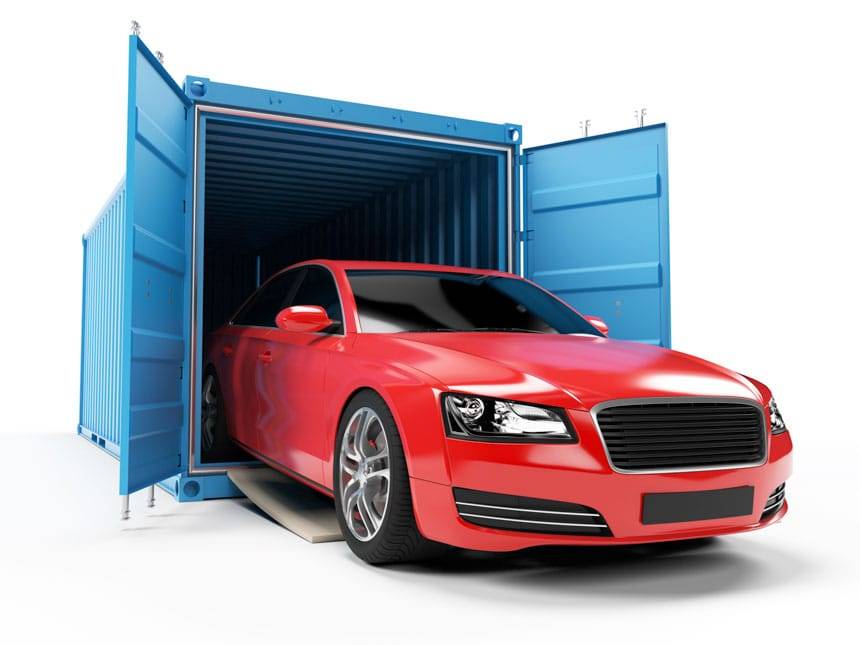- Workplace Type: On-site
Importing Vehicles into Canada

Get it right the first time
If you plan to import into Canada from the United States, you'll need to navigate a long list of rules, regulations, processes, and costs after making your purchase.
For individual and commercial importers, Cole International provides the full range of services to ensure your vehicle import runs smoothly.
Vehicle importing.
It's what we do.
To provide vehicle importers with the most efficient and reliable service possible, Cole International has established a department dedicated to vehicle-related imports. From a customs and logistics company whose track record is second to none, you get:
- ‘One-stop’ service from anywhere in Canada for all your vehicle import needs
- An experienced representative assigned specifically to your account – your assurance that all your questions and needs will be handled personally by a member of our vehicle import team intimately familiar with your import
- Real-time information at your fingertips through Cole Portal – a valuable, no-charge service that provides online access to your active and historical import information
Have you arranged for AES filing?
If not, you’ll need to.
On April 5, 2014, U.S. Census Bureau (Census) Foreign Trade Regulations (FTR) mandated the filing of export information through the Automated Export System (AES). The AES stipulates that every self-propelled vehicle leaving the United States must be reported to CBP in advance of the requisite ‘72 hours’ notice’. Census agreed to provide an additional 6-month period for “informed compliance”, where no penalties will be issued. However, after this period on October 2, 2014, Penalties for non-compliance range from $500 to $10,000.
Your AES filing must be reported by a customs brokerage or freight forwarding company with an office in the United States. (A United States Principal Party in Interest, or USPPI, can also file the AES declaration.) Cole International USA processes AES vehicle export filings.
To complete your AES filing, the reporting company will require an EIN, IRS or D-U-N-S number from the seller. (These numbers establish that the seller is employed or has a business in the United States.)
Upon acceptance of your AES filing, an Internal Transaction Number (ITN) will be issued – the AES-generated number assigned to a shipment confirming that your filing was accepted. This ITN must accompany the request to start the 72-hour CBP export notice.
Vehicle Import Services
- Arrange for transportation (if required)
- Manage your Automated Export System (AES) filing
- Apply for and monitor the U.S. Customs 72-hour requirement
- Establish an import account including Import Business Number (required for personal and commercial imports)
- Pay all applicable duties (if not North American manufactured), GST, Excise (automotive air conditioning & Fuel Consumption/Green Tax, if applicable)
- Prepare RIV Inspection Form 1, pay RIV fee, remit Recall Letter, monitor and secure RIV Form 2
- Prepare and submit all import-related documents in advance of your vehicle’s arrival at the border.
Do your due diligence
The following are some key points to consider before you commit any funds to a cross-border vehicle purchase:
- ‘Vehicles’ includes cars, trucks, construction and agriculture units, ATVs and all trailers…essentially anything that travels on land. However, AES filing is strictly required for self-propelled vehicles only.
- Some vehicles cannot be imported into Canada, usually because they cannot be modified to meet Transport Canada's Safety Compliance Standards. Consult the list of admissible vehicle imports.
- If you plan to purchase the vehicle in person and drive it back to Canada, you can use the services of a customs broker or make a personal declaration upon arrival at the border. Ensure you arrange for insurance and In-Transit Permits.
- If you are arranging commercial transport for your vehicle, enlisting the services of a Canadian customs broker like Cole International is particularly prudent.
- For all self-propelled used vehicles, U.S. Customs requires 72-hour advance notice. (Does not apply to trailers.) This requires a copy of the title (front and back) that has been signed off by the previous owner and the bill of sale. (The originals should remain with the vehicle.)
- In 2007, the Federal Government replaced the tax based on curb weight with a new 'Green Tax' based on fuel consumption. For large SUVs and high-performance cars, this tax can be in the thousands of dollars. Contact Cole International for more information.
- Vehicles less than 15 years old must enter into the RIV Safety Compliance Program. This requires the Form 1 application (plus applicable fee) and a Recall Letter from the manufacturer. (For a listing of manufacturer contact information, click here.)
- Usually, within a few days of import, you will receive authorization to have your vehicle inspected for compliance. After any required modifications, the vehicle must be re-inspected to complete this process.
- Most provinces also require an ‘Out of Province' inspection before you can register your vehicle.
To learn how to import your vehicle without penalties or delays
… and get it right the first time.
